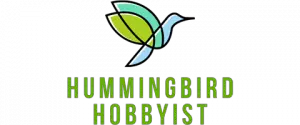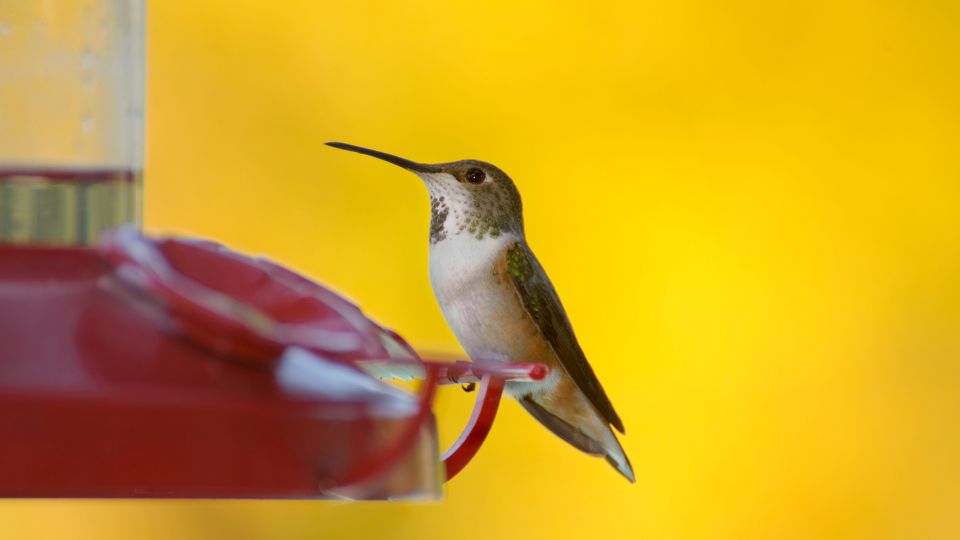If you have hummingbird feeders in your garden or yard, you’ve undoubtedly been working to attract the magical avian species. But what should you do if you see a hummingbird come to your feeder and it doesn’t stop to drink your feeder’s nectar?
There are several reasons hummingbirds may come to your feeders but don’t eat.
Below are several scenarios to check for and simple solutions to apply.
Table of Contents
Check Your Hummingbird Feeders
Hummingbirds need clean food sources and protection from other birds while they feed. Here are some questions to ask yourself about your hummingbird environment. You will attract hummers to your feeders by making sure of the following!
Is the sugar water fresh And not cloudy?
If it’s cloudy, the food has fermented, and it’s time to clean the feeder and put out fresh nectar. In hot weather, change the feeders every 2-3 days, so the food doesn’t ferment.
Is your feeder dirty?
If so, clean it with hot water and soap, and get a bottle brush or toothbrush to get all the grime off. If it’s especially dirty and moldy, use 1 part bleach to 9 parts water to clean it.
Once it’s clean, fill it with your homemade nectar and set it back out. Hummingbirds are attracted to clean food sources!
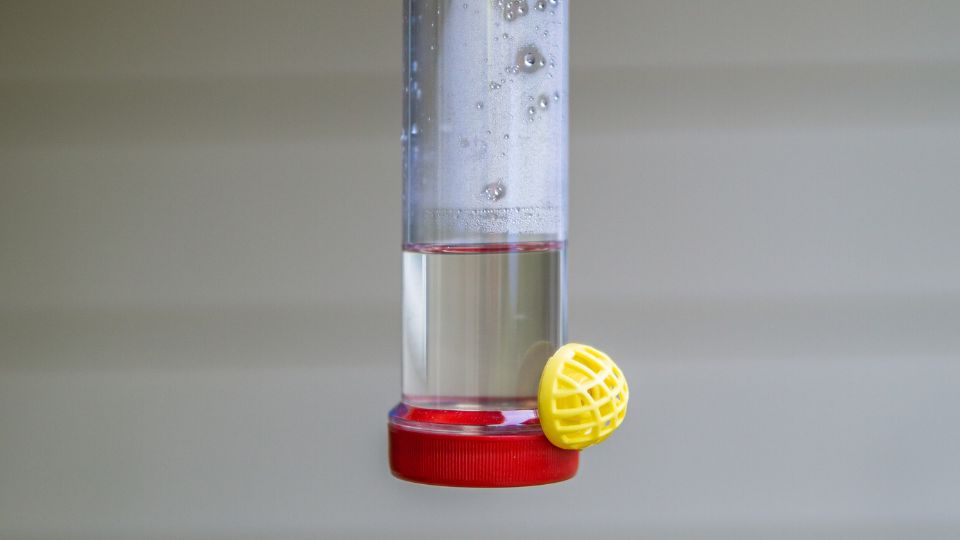
Double Check The Hummingbird Food Recipe.
The correct nectar recipe is 4 cups boiling water to 1 cup white table sugar. Hummingbirds need the chemical compounds of white sugar and don’t tolerate substitute sweeteners or raw sugar. Changing the recipe to include different parts of sugar is not helpful—stick with the 4:1 ratio above.
Save the sugar substitutes (red dye or red food coloring) for your baking projects and give the white table sugar to the hummers! Instead of making their food red, including a few red flowers around your space will attract your local hummingbirds.
Have You Moved Feeders Around Lately?
Hummingbirds remember where their feeders are by using their spatial memory. Moving their feeders around can make them less able to recognize them and may confuse them when they come to the feeder.
New Feeder?
If you’ve exchanged an old feeder for a new one, it will take a short time for hummingbirds to get used to a new one. As they check out a new feeder, they may sit on it to get used to it.
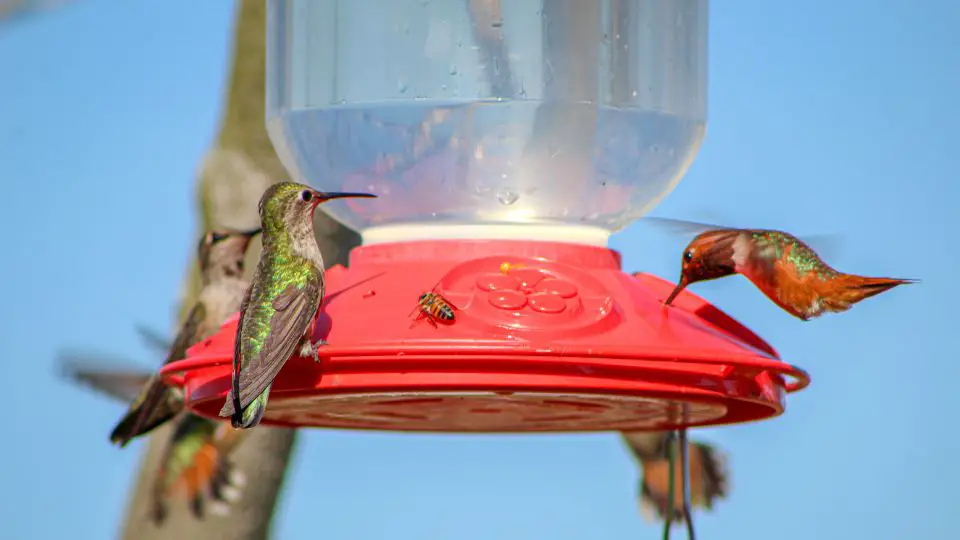
Have Other Pollinators Invaded The Hummingbird Feeder ?
The sugar water that hummingbirds feed on will also attract insects. Sometimes ants find their way into the
Wasps can also be a nuisance, and the larger ones can even feed from the feeder.
Amazon has many flat feeders with ant moats, which can help catch ants and other bugs before they invade the feeder. Fill the moat with water after you’ve filled the
Is The Hummingbird Feeder Near Other Wild Bird Feeders?
Hummingbirds are tiny but aggressive and may are threatened by other bigger bird species that come too close to their food sources. Orioles, jays, and other bigger birds may feed from the
Keep bird feeding areas separate, so the bigger birds eat their own bird seed, not your homemade nectar!
It may be that the hummingbird sitting at the feeder doesn’t feel it is safe to feed because these bigger birds are nearby. In this case, moving the
Is The Hummingbird Feeder Near A Birdbath?
Birdbaths attract pollinators and other birds who may interfere with hummingbirds eating their food. It’s best to have hummingbird feeders away from birdbaths.
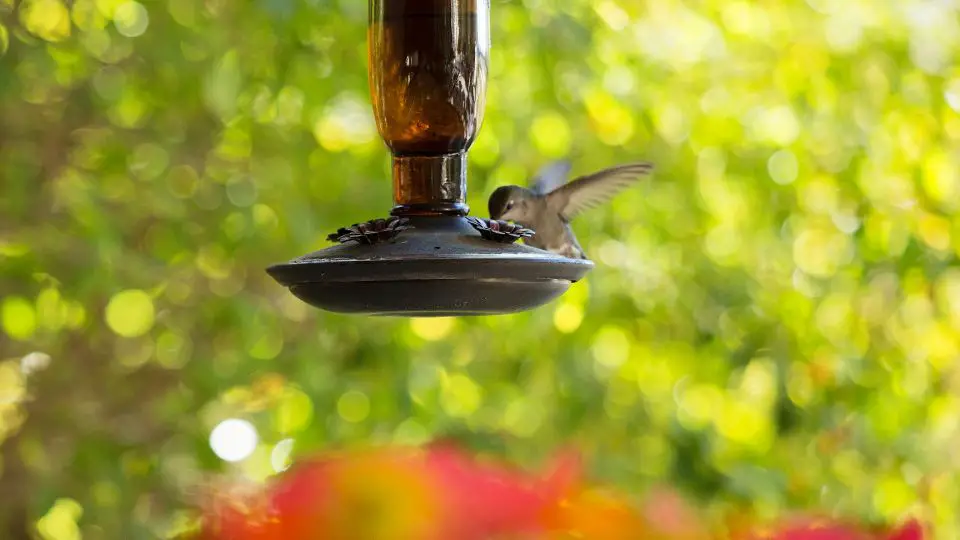
Other Factors To Consider
Ensure you have your feeders up before the hummers migrate through your area. If you fed hummers last year, continue to provide food sources for them! They remember where all of their food sources are and will look for your feeders as they pass by.
If you don’t have them up in time, migrant hummingbirds may pass by your area because they don’t see any food sources.
A quick google search for when hummers arrive in your area can help you decide when to put up your feeders. Research shows that Ruby-throated Hummingbirds and Anna’s Hummingbirds arrive earlier and stay farther north than they did previously. Due to the effects of global weather, there have been changes in habitat formation, so make sure you know when to set up your feeders!
Hummingbirds don’t fly constantly. Though once thought never to stop moving, hummers perch on small twigs or feeders. If you see one sitting, that hummingbird could be resting between drinking sessions.
Male hummingbirds often sit on feeders to protect their food sources. These tiny birds are incredibly aggressive and are always prepared to defend their food source by scaring away other hummers who come to feed. Males will even chase away female hummingbirds who are nesting and feeding young!
Hummingbirds often move around the feeder, sampling all the feeding ports. If they find a tastier port than the others, they may sit near it so they can feed from that feeding port again.
The simple suggestions above will attract hummingbirds and encourage them to eat from your feeders. Make sure to include the color red in your space, keep your hummingbird feeders clean and filled with fresh, natural nectar with no red dye, and you’ll be bird watching in your own space in no time!
